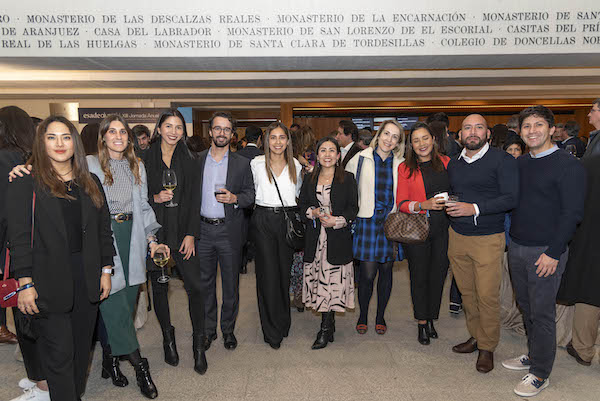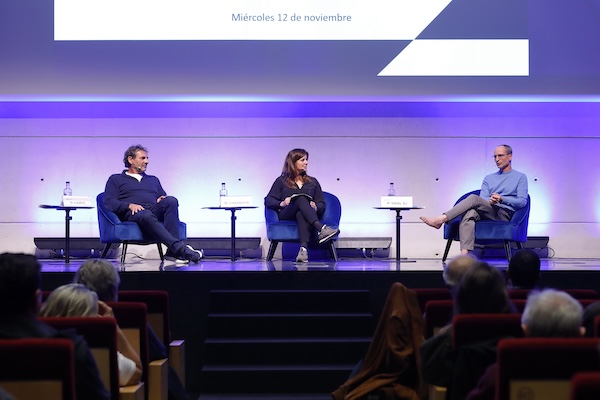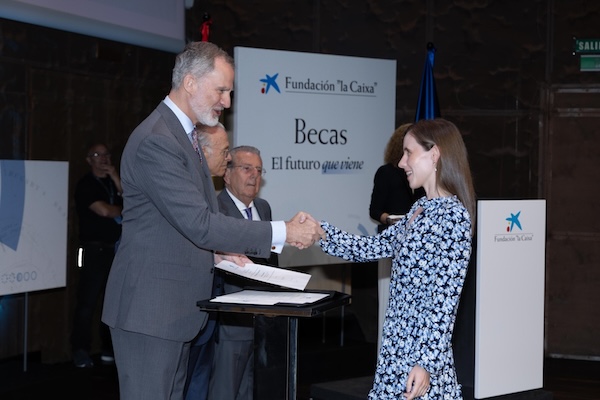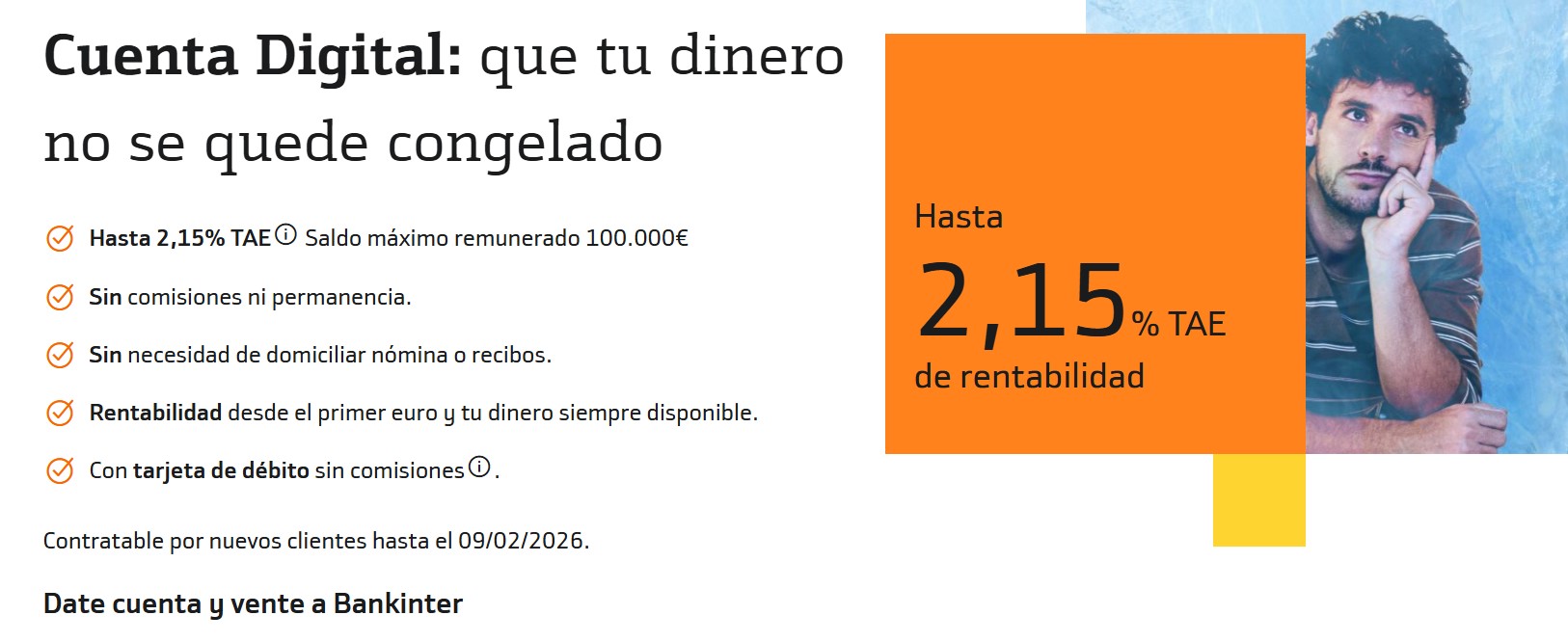With the claim “Leading for Good,” the Esade Alumni Madrid Annual Conference was held on November 22, 2023, at the recently opened Gallery of the Royal Collections.
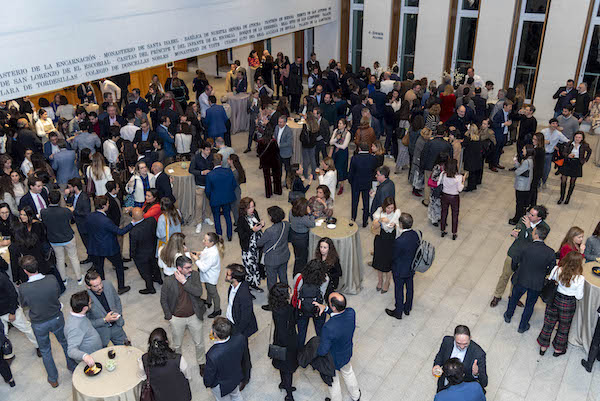
With the claim “Leading for Good,” the Esade Alumni Madrid Annual Meeting was held on November 22, 2023, at the recently opened Gallery of the Royal Collections. It was a unique encounter for Esade alumni, where they were able to share experiences and make new connections. A keynote speaker, Josu Jon Imaz, CEO of Repsol, shared his personal experience as first executive of a large multi-energy company at a time of transformation with purpose.
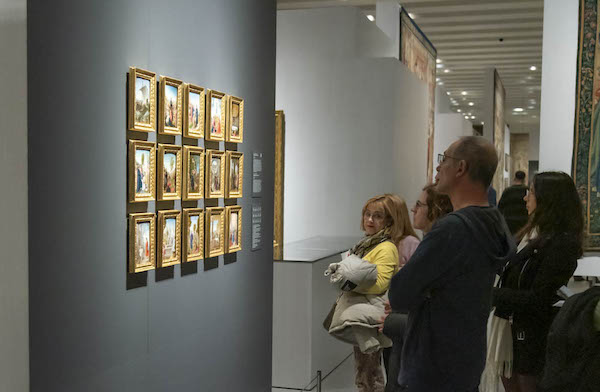
The gathering kicked off with a visit to the holdings of the Gallery of the Royal Collections, a tour through this museum, which displays works of art and culture from Spain’s national heritage in an exceptional building. It features treasures by masters like El Greco, Caravaggio, Velazquez, and Goya, and the tour delighted visitors as the prelude to the gathering in the auditorium.
Back in the auditorium, Patricia Valentí (MBA 02/ Promociona 17), the director of Esade Alumni, welcomed the alumni and expressed her gratitude for their attendance. Indeed, they filled the auditorium of the Gallery of the Royal Collections to the brim. She also thanked Caixbank for its sponsorship of the event. “We have called this meeting ‘Leading for Good’ because it helps us reinforce and share Esade Alumni’s mission: for each of us to contribute to improving the world with little actions.”
Then, the director general of Esade, Xavier Mendoza (Lic&MBA 75), also referred to the claim of the meeting in his talk and highlighted alumni’s opportunity to be the best Esade ambassadors. He presented the lines of the strategic plan for the next four years and took advantage of the opportunity to recount a brief history of the school as a springboard for focusing on the future. “We at Esade want to stand by organizations that not only seek to make companies economically feasible and sustainable but also deliberately try to find a way to have a positive impact on society. We want to train and support the professionals and leaders of the future who are committed to transforming their organizations with purpose.” And to do so, the focus is innovation in the educational programs, research, training in values, and a commitment to entrepreneurs.
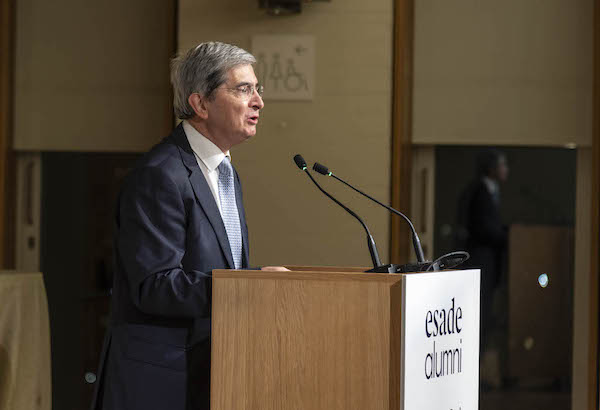
Professor Ángel Sanz (PhD 02), director of EsadeGeo, was in charge of introducing the guest of honor. He highlighted Josu Jon Imaz’s ability to lead a huge company like Repsol at such a tumultuous time and with extraordinary events like financial crises, geopolitical changes, and a huge wave of regulations. After highlighting Repsol’s development in recent years and its transformation into a multi-energy company, he gave the floor to Josu Jon Imaz.
Josu Jon Imaz, an example of an inspiring leader
“When you talk about leadership, you have to talk about yourself because I have become the first executive to experience this transformation with purpose, while also seeking social welfare.” This is how the CEO of Repsol started his talk, and later he surveyed his 38-year career, with 25 years in the private sector and 13 in the public sector. “Leaders are positive and worthwhile when organizations learn, when the leader disappears and goes away but is still reflected in the organization. And I always have the sense that some little glimmer remained of the 13 years I was in politics,” an idea coined by the thinker Daniel Innerarity that Josu Jon highlighted.
Regarding leadership, another name the CEO of Repsol mentioned was Chris Lowney and his book Heroic Leadership: Best Practices from a 450-Year-Old Company That Changed the World, from which he highlighted the four characteristics of leadership: heroism, which has to do with putting organizations first; ingenuity, which translates that through creativity; love; and self-awareness, knowing the organization’s strengths and weaknesses.
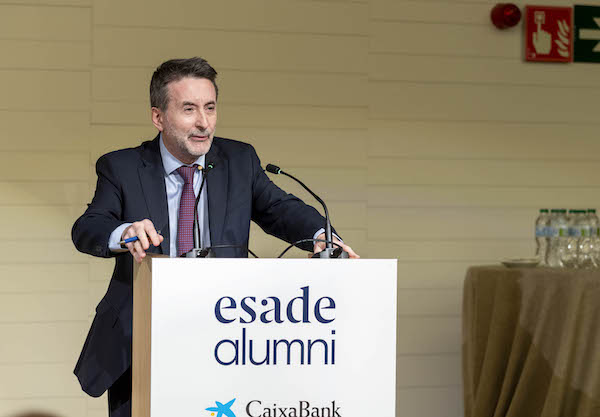
His arrival at Repsol
In 2008, Repsol called him to lead the Petronor project at a critical time because of the complex context, and after that he became the director of Refino, where he made a huge investment in the refinery in Cartagena. He kept being promoted until he became the general manager of Industrial, where he had to deal with a crisis in the chemical sector. In 2014, he was named CEO of Repsol, where he had to cope with the expropriation of YPF in Argentina and negotiate until reaching an agreement, as well as other crises and very low prices of barrels of oil. That was when they launched the resiliency plan in order to deal with very complex market expectations, as well as a spending cutback and disinvestment plan.
In fall 2015, the Paris Summit launched decarbonization. “It’s often said that there is a time for leadership. For me, that was the time. That’s where you have to have a very clear vision to paint a picture about the future about where we want to be. We said that Repsol was going to be the first company in the sector to fulfill the Paris Agreement.” Lowering emissions was joined by a reduction in reporting, internal rules, and expenses, and a commitment to digitalization and industrial employment. It was a shared vision with the “coalition of us,” which entailed getting the president, board, shareholders, employees and unions onboard to effect a huge shift towards “talking to people directly, focusing on direct communication.”
“When you talk about leadership, you have to talk about yourself because I have become the first executive to experience this transformation with purpose, while also seeking social welfare”
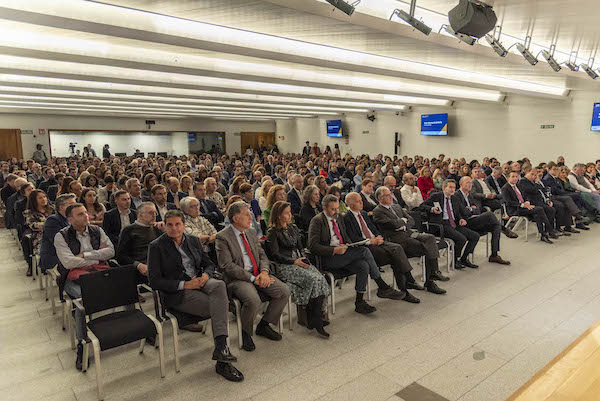
At that point, when the company had started a transformation process with an ambitious commitment
to becoming a NetZero emissions company by 2050, the COVID-19 pandemic arrived. “It was a very hard pandemic for people and companies, and as a company in the field of mobility it was also really difficult. I think that we need more closeness and support for the business world, because it’s what generates investment, commits to industry, brings innovation and technology, creates opportunities for young people, and serves as a model of competitiveness for the country.”
Josu Jon Imaz stressed that this vision of the future is shared by the entire company and has helped it move towards decarbonization, the transformation of industrial complexes into multi-energy hubs, renewable fuels, the commitment to digitalization, and investing in specific markets. “Because we have to keep investing based on realistic policies that are able to address the threefold aspects of the energy dilemma: security of the supply, affordability of energy, and decarbonization.”
The CEO of Repsol finished his talk by reminding the audience of the ingredients of leadership as the factors that enable us to deal not only with the challenges of the energy transition but also with creating a modern, competitive country that provides the next generation with opportunities.
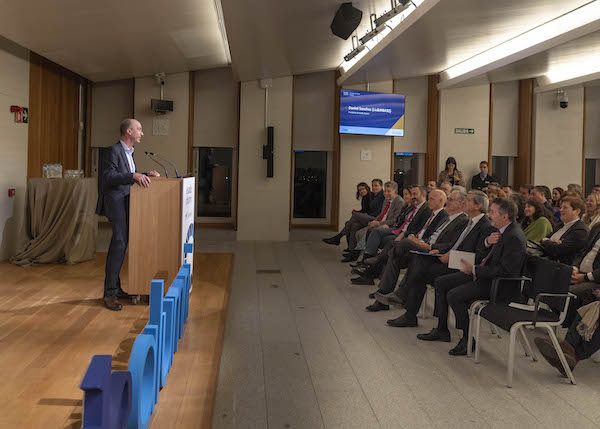
The finishing touch of the event came from Daniel Sanchez (Lic&MBA 92), president of Esade Alumni, who underscored the huge global community of alumni, with more than 73,000 people, who share similar interests and concerns. The main goals of the association include fostering networking among its alumni, contributing to the school’s prestige, and having a positive impact on society. These objectives are joined by the contribution to the scholarship program, “which is essential in attracting the best students and making a fairer and more diverse school.”
Following tradition, at the end of the meeting the participants shared a relaxing cocktail in the entrance lobby of the Gallery of the Royal Collections, where the debate on leadership with impact and the transformation of organizations continued.
